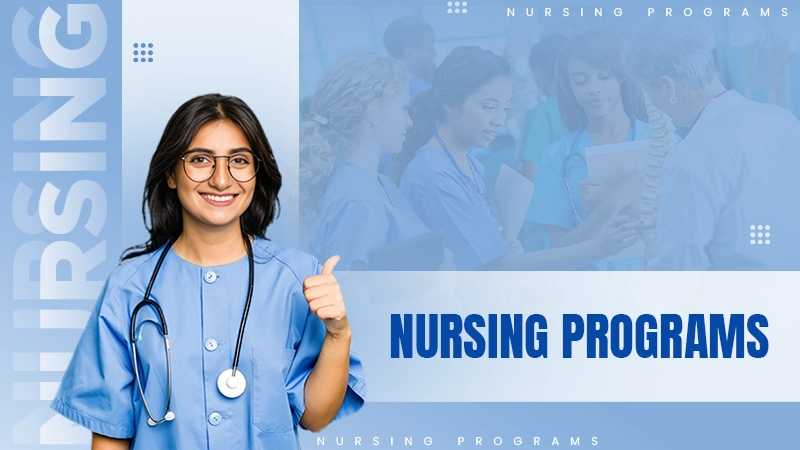
It isn’t easy to become a nurse, as not all the barriers to entering this field are academic. While many students often feel discouraged about knowing the harsh financial reality of earning their financial degree, others are still confused about where to start!
Though nursing is one of the most rewarding career options out there, that also comes with a range of opportunities to help those in need. However, the profession is still quite difficult to enter due to all the challenges and barriers along the way.
So, in this read, I will walk you through some common obstacles and solutions for entering nursing programs.
Let’s start!
Obstacle Number One: You Don’t Want to Go Back to School
Nursing is one of the most popular secondary careers in the world. People who began their professional life in one job only to find that it was not satisfying, often approach the profession as a high-paying, sometimes flexible way to make a difference in the world.
And yet, it can be intimidating to pivot into nursing. You already have a degree, and it probably is not in healthcare. What should you do?
If you are worried about starting life as a freshman again, rest assured that this certainly will not be the case.
Most states allow students who have already obtained their bachelor’s degree to participate in accelerated programs. These degree paths are still difficult, but they allow you to skip all the general requirements.
Consequently, you can become a nurse without taking Intro to Math or any of the other classes you probably slept through your freshman year of college.
You can also make the pivot quicker. Depending on your bandwidth, you can complete your accelerated nursing program in as little as 18 months. Students who have some healthcare-related experience in their educational background may be able to shorten the time frame even more.
This accelerated coursework is naturally very intensive, but it does offer a quick way for people who already have a college degree to enter the rewarding world of nursing.

You are Worried About the Financial Realities of Becoming a Nurse
That’s very understandable. Turn on the news for a few minutes, and you’re sure to hear something about the student loan crisis. Do you want to borrow hundreds of thousands of dollars to become a nurse? You don’t have to answer that.
Most people are turned off by the idea of major student loans. Unfortunately, there is no perfect solution to this problem. However, it is worth pointing out that there are tons of grant and scholarship opportunities available specifically for attracting students to the field of nursing. There is a significant shortage of nurses. There are lots of programs out there that are designed to bring students into the profession.
Look around for grants and scholarship opportunities that best reflect your background. Not all awards are based on merit. You may, for example, be able to find some grants that are available to anyone who is willing to work in an understaffed hospital. These days, those aren’t so hard to come by.
As with anything, it’s best to start early on your research. Give yourself a few months to track down high-quality grants and scholarship opportunities. You may be surprised by how much award money you are eligible for.
Tip? Don’t undervalue smaller awards. While $1000 may not sound like much when you’re looking at more than $100,000 in student loans it does make a difference. Look at your bank account right now. Would it look better with $1000 more in the balance? We thought so.
Do You Know?
Nursing is the country’s single largest healthcare profession in the United States, with nearly 5.2 million registered nurses.
You Never Thought of it as an Option
This issue is, admittedly, more abstract. It has less to do with something you did and more to do with a broader problem in the world of healthcare recruiting. Historically, people of a very specific background have been approached to consider careers in nursing.
You can imagine them easily enough. Perky young women, usually from a middle-class family. Usually white.
Unfortunately, this person represents only a very small segment of the population. Hospitals, by contrast, are an intersection of all walks of life. Regardless of your racial or economic background, you will wind up using the healthcare system at some point. Why is representation on the provider side of the table almost non-existent?
The reason is that students of lower, socio-economic backgrounds, or minority cultures are very rarely considered when college programs are launching their recruitment initiatives.
Unconscious bias? Maybe. The worst part is that patients are suffering because of it. Studies consistently show that majority group care providers are significantly less effective when they are dealing with members of minority groups. Why is that?
Many people believe it is a communication gap. The majority of group members simply may not know how to relate to individuals of different cultural backgrounds.
In the short term, hospitals are providing sensitivity and diversity training to improve their majority group members’ ability to interact with all segments of the population. In the long term, recruitment offices are working harder to attract people from all walks of life.
Bottom line? Your background doesn’t dictate your future. Regardless of race, religion, or socio-economic status, anyone with the skill and the drive to become a nurse can and should consider it as a career option.
You Don’t Want to Work in the Hospital
That’s another issue that is born out of misunderstanding. Many people are naturally reluctant to take on the 12-hour evening, weekend, and holiday shifts that are inherent to nursing.
What if you didn’t have to?
The truth is that many people don’t. While floor nurses make up a significant portion of the overall population, it is ultimately just one route you can take once you’ve acquired your BSN.
Nurses can work in schools. They can work in doctors’ offices. Some nurses even work from home. Or from the homes of their patients.
What interests you the most about healthcare? Chances are pretty good that there is a career out there for you that matches that interest.
While many nurses do start out working in a hospital, you don’t have to think of that as the beginning and end of your career. Get experience. Identify your passions. And think about ways you can accentuate them in your career.